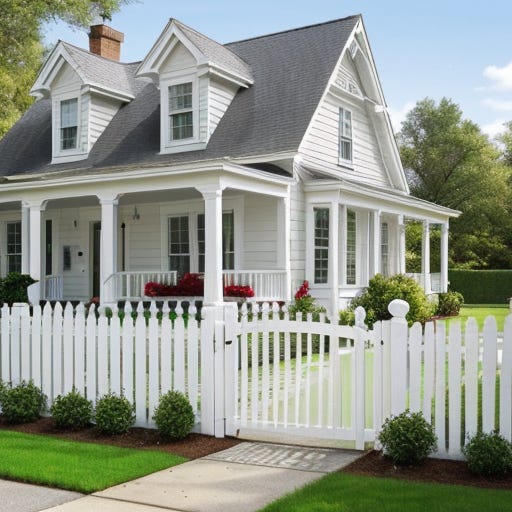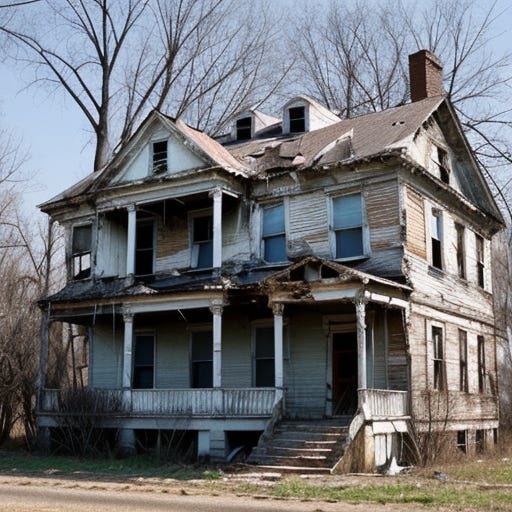Is Your Home an Asset?
Asset or Liability?
Most people consider their home not only an asset but their greatest asset. How good is your financial literacy? Most people have a weak understanding of the difference between a liability and an asset as well as many other nuances of finances.
Buying a home can be an excellent financial decision. Far too often, people fail to understand all the nuances though.
The most accurate description of a home is as an investment. Generally a home will increase in value, but not always. It is a gamble. Much like buying stock in the stock market. Generally it goes up but sometimes it goes down.
Constantly buying a home and selling it a few years later and buying a more expensive home can be a major mistake. Doing this digs you into more and more debt.
Buying at the wrong time (high interest rates) can be a serious mistake. You may think “well I’ll just refinance when rates come down” but keep in mind, every time you refinance you are spending more money.
Homes also cost money to maintain. Replacing the roof, re-siding it, repairs and general maintenance are financial drains (liabilities). Homeowners insurance is also a significant expense.
Homes cost money to operate. Electricity, gas, water, garbage service are all expenses you have to constantly pay.
Property tax is another expense and it’s almost always going to go up, not down.
Buying too large of a home may be a status symbol but it also can be a financial mistake.
I love owning my home. I’m not advocating not buying a home. This article is to raise your financial literacy and better understand the financial implications of home purchases.
In my opinion, a home is almost always a good financial investment if you hold it for ten, twenty, thirty or more years. If you were renting during that time, you’d almost surely see your rent costs creep up higher and higher. If your career is unstable and will lead to moving frequently it’s probably better financially to rent rather than buying a home.
If you are reasonably young, give some thought to making investments that will eventually pay for your home instead of rushing out and buying a home. Especially too expensive of a home.
Keep in mind that the only time you profit off a home is when you sell it. Thus a fully paid off home can be a great inheritance for your children, but it won’t make you wealthy (because as soon as you sell it you have the expense of buying another home – typically the next home is not a less expensive home).
Typical people work for three entities: they work for their employer (their job), they work for the government (paying taxes) and they work for the bank (paying interest on a mortgage). Isn’t working exhausting?
Tips to enhance the investment value, and decrease the liability aspects, of buying a home:
Don’t be a typical, financially illiterate twenty something. I know, this one is nearly impossible but maybe you were lucky and your parents taught you something about money as a child. (perhaps leverage parents for financial help to initially purchase a home on favorable terms)
Save as much money as possible to make as large of a down payment as possible so that you are borrowing as little as possible.
Buy as little of a house as you can (lowest cost) but will be comfortable living in for a long time.
Do your best to predict if interest rates will be rising or falling in the near future. If interest rates will be falling, delay buying a home.
Buy in a growing neighborhood. You want the value of a typical house in that area to be on the rise, not the decline. Be very careful of buying a bargain in a slum.
Pay extra principle on your loan every month. This should greatly reduce the amount of interest you pay over the lifetime of the loan.
Homeowners insurance is usually desirable but avoid mortgage insurance! If you have to get mortgage insurance initially, discontinue it as soon as you are eligible!
Budget for home maintenance. New roofs, furnaces, and other such things can be very expensive, you want to make sure you have cash on hand to pay for them so you don’t need to borrow money for an emergency.




I would add to this, plant stuff. Maybe fruit and nut trees if you are inclined. I am staying at my sister's house in the most awful suburb ever. I hate suburbs generally and this one is particularly irking. I saw a picture of when she first bought it over 20 years ago. It was completely bare like much of the rest of the neighbors yards still are. But my mom planted a bunch of trees and shrubs in the backyard and time did its thing and it looks so much better.